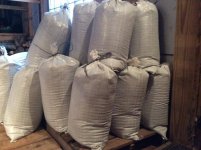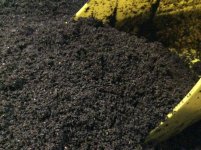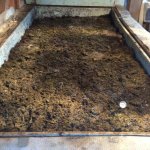Bongstar420
Member
My grow has an ecosystem that I did not purchase..This includes resident worms and nematodes. It only took 6 months and careful movement of plants from out doors to indoors.
The fungus gnats were bad for a while, but the fungus gnat predators and generalist predators are now in a reasonable equilibrium with the gnats. I apply a biocontrol bacterium only occasionally.
The fungus gnats were bad for a while, but the fungus gnat predators and generalist predators are now in a reasonable equilibrium with the gnats. I apply a biocontrol bacterium only occasionally.
nematodes work 15 bucks on ebay mix dry pour into each in bin takes about a week to see a change i wipe volck oil spray on the rim of my bin keeps all mites from leaving the bin when the nematodes start to eat them they suckem dry too






